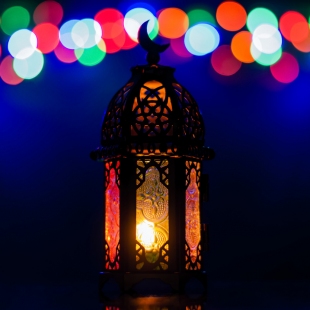Al-Hijra or Awal Muharram, the Islamic New Year, is the first day of the month of Muharram, the first month of the Islamic calendar. It marks Muhammad’s, blessings and peace be upon him, journey in 622 CE from Mecca to Medina, where — free of the persecution they had experienced in Mecca — he and his followers established the first Muslim community. The Holy Qur’an notes that Muharram is one of the four sacred months in the year.
While Al-Hijra is a public holiday in many countries, it is celebrated less than other holidays like Eid al-Fitr and Eid al-Adha. With roughly 1.8 billion Muslims in the world today, how it is celebrated varies in accordance with Islamic school of thought (Sunni, Shia, etc.), tradition, and culture. For many, it will involve a time of reflection, Qur'anic recitation, and extra prayers.
To Name this Day:
 Article
Article
In Muharram: Mankind’s Memorial, Shaykh Faid Mohammed Said explains why Muharram is an especially auspicious month on many levels.
 Spiritual Practice
Spiritual Practice
I Promise is a vow to strengthen and affirm our relationship with God.
Bidding Farewell to this Year and Welcoming a New Year offers prayers and acts of worship for the new year.
The Month of Muharram and the Day of Ashura provides Islamic jurisprudence related to Muharram, including fasting, voluntary night prayer, and giving charity.
